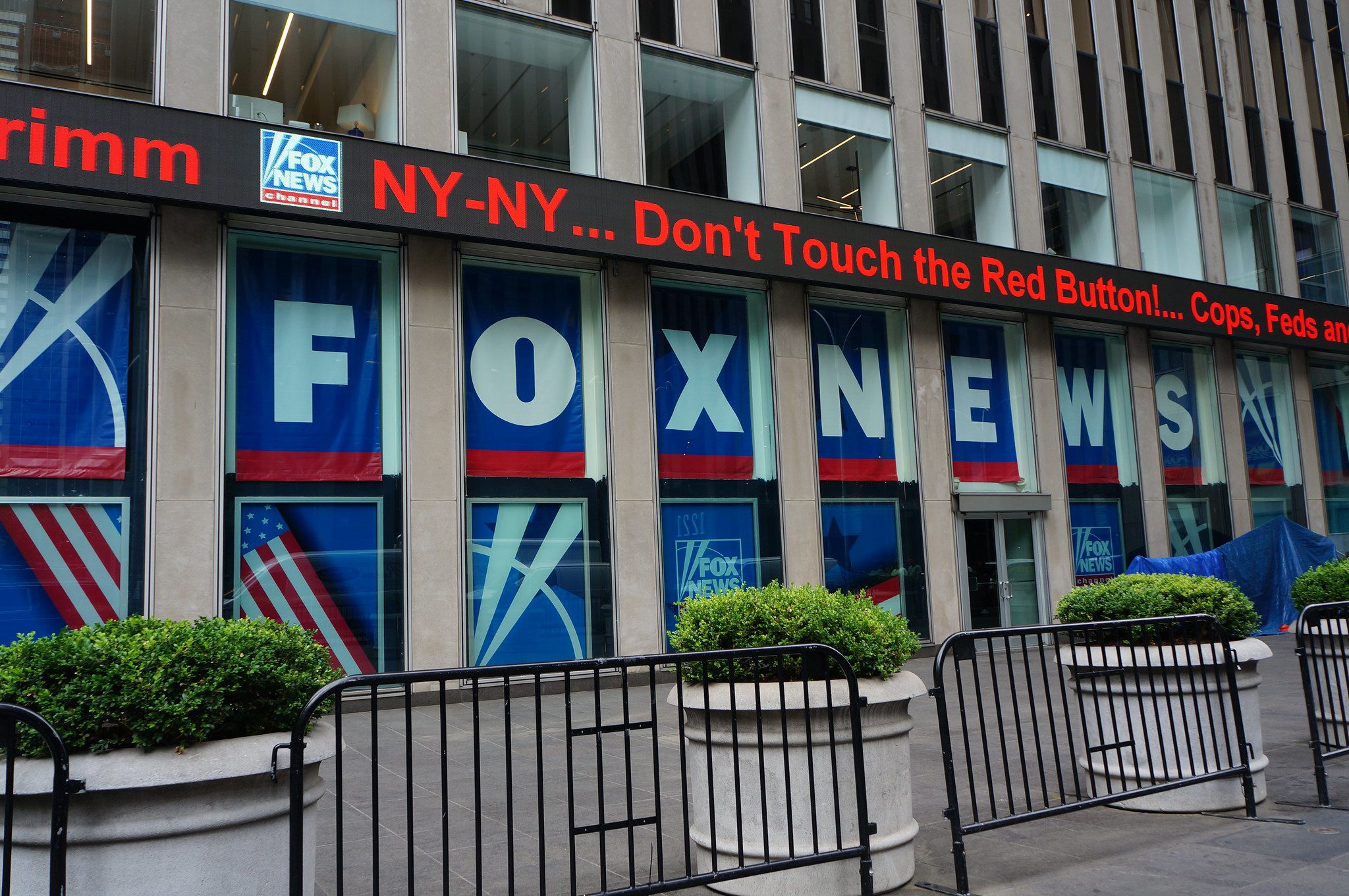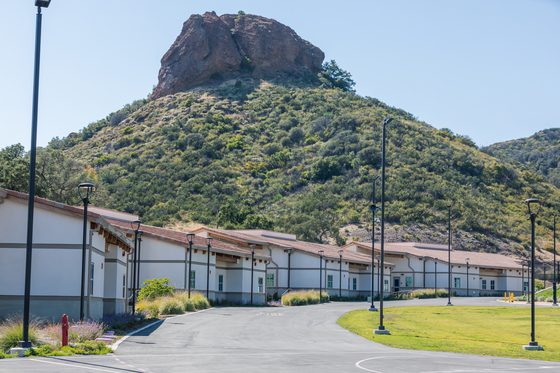Striking members of the Writers Guild of America returned to picket lines Tuesday, while yet another studio executive insisted the walkout will not have a major impact on operations or viewers.
Speaking in an earnings conference call, Fox CEO Lachlan Murdoch said the network’s emphasis on news and sports puts it in a good position to navigate the walkout.
“I think for us, we are well-positioned, and we think that with our strategic priorities and strategy in sports, but also in news, those are two areas that are not affected by the writers’ strike and the audience will pivot when watching television to those categories,” Murdoch said.
He also noted that Fox programs only two hours of entertainment nightly, and it is a mixture of scripted and unscripted content.
“We feel very well-positioned there,” he said, adding that the network will not “be affected by the writers’ strike really at all.”
“There will be some scheduling changes with some of the scripted content but it’s not something that will have a significant financial impact on us,” he said.
His comments echo those made by several other studio executives, who have all contended that they have sufficient material already “in the can” to keep programming going, with the exception of late-night talk shows and variety programming such as “Saturday Night Live.”
The WGA has shot back at such contentions, saying studios do not have an endless well of content on which to draw.
In a letter sent to union members Monday, WGA West President Meredith Stiehm said the strike is having a definite impact.
“You are being seen and heard, and supported,” Stiehm wrote. “We’ve had massive national and international news coverage. … Our picket lines have already shut down location shoots in N.Y. and L.A.; the late night shows went dark on Tuesday; and the ‘MTV Movie & TV Awards‘ live show was canceled because of our action. All in only four days on strike.”
Stiehm also noted support the WGA is receiving from other unions and labor groups
“This action is about more than just our struggles as writers,” Stiehm wrote. “It’s about workers and labor across our country. We have historic solidarity from our sister unions, because they are feeling starved out too. They see their struggle in our struggle. Corporate dominance is trying to drive us to the margins, toward a gig economy — and this union will not allow that. So go out there and fight, all week long — and know that we are all in this together.”
On Monday, President Joe Biden expressed support for striking writers, his first comments about the work stoppage.
“I sincerely hope the strike gets resolved, and writers are given a fair deal as soon as possible,” Biden said at a White House screening of “American Born Chinese” in celebration of Asian American, Native Hawaiian and Pacific Islander Heritage Month.
“This is an iconic, meaningful American industry and we need the writers — and all the workers — to tell the stories of our nation, and the stories of all of us.”
The strike entered its second week Monday, with no sign of any progress being made in labor talks as the entertainment industry continued bracing for what could be a protracted work stoppage, surpassing the one that occurred 15 years ago.
Hundreds of picketers walked strike lines throughout the day at major studios, continuing a walkout that began last Tuesday after negotiations between the union and the Alliance of Motion Picture and Television Producers, which represents the studios, failed to yield a deal.
Local picketing has been conducted at Amazon Studio in Culver City, CBS’ Studio City lot, Television City, The Walt Disney Co.’s corporate headquarters in Burbank, the Fox Studios lot, Netflix’s Hollywood headquarters, Paramount Studios in Hollywood, Sony Studios in Culver City, Universal Studios and Warner Bros. in Burbank.
There was no word of any new labor talks scheduled between the WGA and the AMPTP with some observers saying the strike could last for months.
The last WGA strike lasted from November 2007 until February 2008. Various estimates from different organizations estimated that the 100-day strike cost the local economy between $2 billion and $3 billion.
The WGA is pushing for improvements on a variety of fronts, notably for higher residual pay for streaming programs that have higher viewership, rather than the existing model that pays a standard rate regardless of a show’s success.
The union is also calling for industry standards on the number of writers assigned to each show, increases in foreign streaming residuals and regulations preventing the use of artificial intelligence technology to write or rewrite any literary material.
WGA officials say on the union’s website that writers “are facing the most comprehensive assault on compensation and working conditions that they have seen in a generation.”
The AMPTP issued a position paper Thursday outlining its take on some key negotiating points in the labor impasse. Responding to a union demand for minimum staffing levels and employment guarantees, the alliance contends such a move would “require the employment of writers whether they’re needed for the creative process or not.”
The alliance also pushed back on the issue of streaming residuals, saying the union’s most recent contract gave writers a 46% increase in streaming residuals taking effect in 2022 — increases that some writers may only now be seeing in their paychecks. The alliance contends the union’s proposal would represent a 200% increase over current residual rates.
It also called for “a lot more discussion” on the issue of artificial intelligence, and suggested that writers “want to be able to use this technology as part of their creative process, without changing how credits are determined.”
“The AMPTP member companies remain united in their desire to reach a deal that is mutually beneficial to writers and the health and longevity of the industry, and to avoid hardship to the thousands of employees who depend upon the industry for their livelihoods,” according to an alliance statement issued when the strike was announced. “The AMPTP is willing to engage in discussions with the WGA in an effort to break this logjam.”
On Saturday, a group of showrunners met at the Writers Guild Theater in Beverly Hills, a day after Disney, HBO, Warner Bros. and several other studios sent letters saying they would be required to continue doing their non- writing duties during the strike — even if it means crossing WGA picket lines, according to multiple media reports.
A Wednesday letter from Disney’s ABC Signature read in part: “Your duties as a showrunner and/or producer are not excused, suspended or terminated until and unless you are so notified in writing by the Studio,” the entertainment website IndieWire.com reported. “Studio intends to stay in production during the WGA strike and we are legally entitled to do so.”
The WGA’s contract negotiating committee has advised showrunners to stop doing their non-writing duties, which also includes promoting their shows and attending various industry events, until the strike is settled.
“It’s as simple as we are at war with the studios,” one showrunner told The Hollywood Reporter. “We can’t be at war one day and be their partners the next. If we’re going to a `For Your Consideration’ (Emmy) event, we’re being their partners. It’s kind of impossible to separate your producer brain from your writer brain. Everything really is writing, especially when you’re a showrunner.”
Although several who attended Saturday’s reportedly packed meeting described the studio letters as “scary,” they vowed to remain united.
“Those studio emails have had the opposite intended effect now,” one showrunner at the Saturday meeting told Deadline.com. “Now we are more united, more convinced than ever that there is no non-writing aspect of what we do.”







